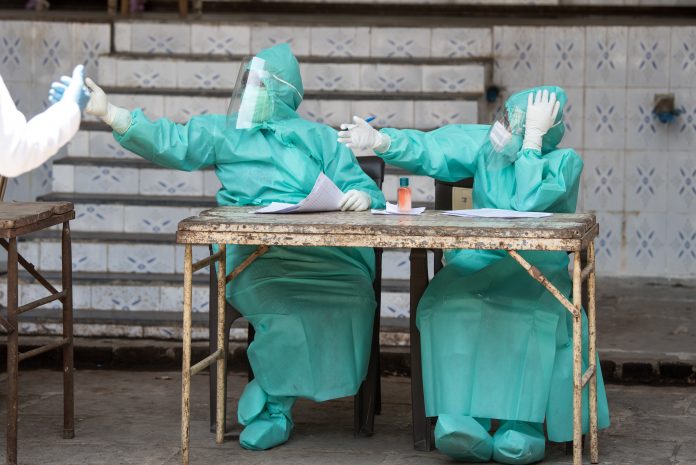Researchers at Monash Business School surveyed the Indian public in Uttar Pradesh, finding that 66% blame the Muslim population for the spread of COVID
The ‘double mutation’ of COVID-19 in India is creating a possible increase in infectiousness, with the variant slowly becoming a global concern as it exits India. Nepal is currently suffering a 1200% increase in cases, with not enough resources to treat those who contract a severe case of the virus.
While India continues to suffer an extreme amount of COVID hospitalisations and deaths, people are beginning to form opinions about who is to blame for this ongoing wave.
Professor Asad Islam, Director of the Centre for Development Economics and Sustainability in the Monash Business School, asked 2,138 people across 40 neighbourhoods in Uttar Pradesh what they thought about the rise in COVID cases. It is important to note that this work was done in 2020, but the research team believe it still rings true of current stigmas that may be impacting how people react to the pandemic.
93% blamed “foreigners” for the new COVID wave
Professor Islam found that 93% of participants believed that foreigners were responsible for the ongoing disaster, with a further 66% blaming Muslim populations for the spread of COVID.
The team believe that misinformation, rumour and long-held discriminatory beliefs led to the perceptions they were finding in Uttar Pradesh, a Northern State in India.
When it comes to religious festivals, some communities are perceived to have participated in super-spreading events and others aren’t. All major religions in India have had gatherings in the last four months, but there is a commonly-held belief that Muslim gatherings are to blame for a spread in infection.
Interestingly, healthcare workers were also regarded with suspicion.
A substantial 34% of participants said that they blamed healthcare workers for failing to contain the spread of COVID, while a further 29% blamed law enforcement agencies for the same reason.
One month later, participants were given COVID knowledge
This knowledge tackled existing stigmas and misinformation about COVID, which led to more than half of the group becoming less likely to believe that an ethnic minority or community were responsible for the spread of COVID.
Individuals became more likely to seek medical help for COVID symptoms. There was a 75% reduction in stress and anxiety experienced by participants in the treatment-seeking group.
Co-author Associate Professor Liang Choon Wang from the Monash Business School’s Department of Economics, said: “Health advice from credible sources in simple language is of utmost importance as individuals are still taking the pandemic lightly, not wearing their masks and are reluctant to get vaccinated due to widespread ignorance and misconception, even when the numbers are soaring.”
Stigma has led to ‘dead bodies being dumped in rivers’
Dr Islam said: “Cases of stigmatisation during the second wave have resulted in doctors being verbally abused and prevented from taking a lift in their own residential flat, old parents being abandoned, several patients fleeing medical facilities across the country, and dead bodies being dumped in rivers.
“Most importantly, we found that stigmatisation of COVID-19 can have negative public health implications as it may lead people to avoid getting tested and respecting prevention measures.
“This is essential if India is to get on top of this second wave.”











